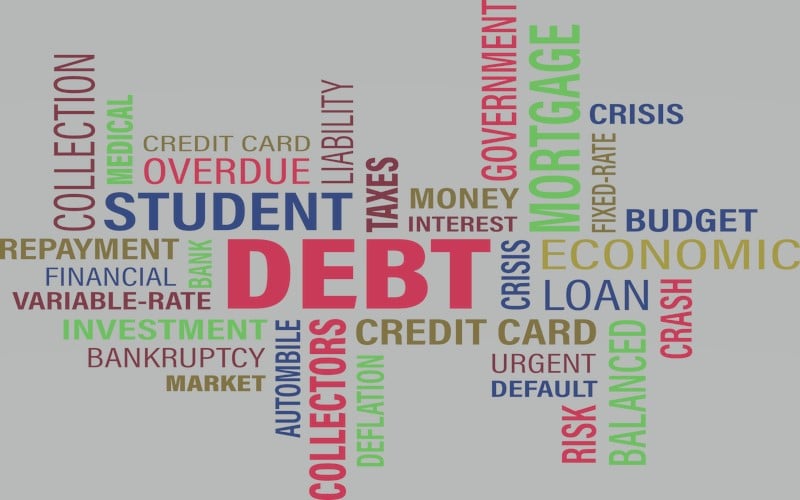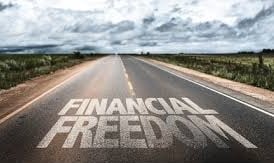Debt Reduction – Your Options

If you’re struggling with debts, the worst thing you can do is ignore the problem and hope it will go away. Steps you take now to achieve a more stable financial position will make a big difference.
Please note that the following are my personal opinions and in no way constitute professional or legal advice. Please note that this is written from an Australian context meaning that some of the recommended options may not apply to someone outside of Australia.
If you have worked through the “Managing Your Money” post and realise that you have debts where you cannot meet the required repayments, all is not lost. Again, you are no worse off than you were before, you now have an understanding of your problem and can take action to resolve it.

If you’re struggling with debts, the worst thing you can do is ignore the problem and hope it will go away. You may be embarrassed, fearful, or even too proud to ask for help and advice. Don’t let your emotions stop you from tackling your debt. Steps you take now to achieve a more stable financial position will make a big difference.
At this point it is prudent to give you a warning against Debt Consolidation. You may have heard of something called a debt consolidation loan, where all your debts are taken and reduced to one, small, easy to manage monthly payment. Though there are benefits to these and they can be of great help to some people, you must be aware that a consolidation loan may cost more in the long-term and could be secured against an asset, which could result in the loss of that asset if there is non-payment. If you are thinking about a consolidation loan, please seek professional help.
One of the first steps to take is to separate your debt into priority or secondary debt.
Priority debt: This is where you are likely to lose the item or service or face prosecution if you do not pay. This would include, Rent, Electricity, Car Payment, Council Rates etc.
Some debts are more important than others. As you work out how to prioritise your debts you need to make sure that paying certain bills won’t mean you end up defaulting on others that may have serious legal consequences for you.
You will need to explore and understand the options available to decide how you are going to manage your bill and debt payments. For example, if you are struggling with mortgage repayments and debt generally, you can apply for a Mortgage Hardship Variation from you lender. If you get into the situation of being three months behind with your mortgage payments, you may be eligible for a loan under the Mortgage Relief Scheme or to apply to access your superannuation early.
At any stage when you are in debt, you may ask your lender to reduce or defer payments. If they refuse, or the offer is unsatisfactory, you may approach the Australian Financial Complaints Authority for help.
If a creditor is threatening legal action and there is no relevant dispute resolution scheme, it may make sense to deal with this debt first, either by paying it out or negotiating a repayment plan. A financial counsellor can help with advice on this and in negotiating with the creditor.
Secondary debt: This is largely your unsecured debt. This would include Credit Cards, Personal Loans, Store Cards etc. Whilst there are enforcement measures available, the short term consequences are less serious than for the Priority Debt.
Often, the debts that have the least impact on you long-term will shout the loudest and it is really hard to keep focused on paying the right thing. Make sure that you look after your priority debts above any secondary debts that you may have.
Two Ways of dealing with your debt
(bearing in mind that you need to look after priority debts first)
- Clear the smallest first: This will help to provide you with some headspace if you have many debts, and some much needed encouragement as you work your way through your debts. Remember, keep up with your contractual repayments on all your debts and focus any additional money you have on clearing the smallest debt first.
- Clear the most expensive first: You will be able to make a bigger impact on your financial situation if you take some time and work out which debt is costing you the most. If a debt has pre-computed interest, then as long as you continue with your contractual repayments, it is unlikely that the cost to you will increase. However if your debt has revolving interest (where interest is added each month), then even if you maintain your contractual repayments the cost will increase. Paying more towards debts that are costing you the most will save you money in the long run.
Personally I believe that the better option is to clear the most expensive first but I recognise that for some of us we need to see a few quick results to keep us motivated.
Debt payment options
Consumer legislation and government support schemes and grants have been established to assist you to manage your debts.
By understanding your debts and your payment options and the legal consequences of not paying, you’ll be able to prioritise which debts you pay first. If you at least pay something towards your outstanding debts, your creditors may delay action against you and give you the opportunity to deal with the debt.
The options available to you might include:
- asking for informal arrangements during a period of temporary financial hardship, whereby you agree with your creditor to adjust repayments in the short-term only.
- checking to see if you have credit insurance that applies to your debts and loans.
- applying for a hardship variation to your repayments through the available hardship programs for banks, utility companies and credit contracts to either reduce repayments, defer payments, extend the term of your loan or a combination of all these.
- approaching the Australian Financial Complaints Authority for help if your lender does not agree to a formal or informal hardship variation.
- accessing available government grants and loans for debt relief, including the Mortgage Relief Scheme and the Utility Relief Grant.
- getting a debt consolidation loan by combining a number of loans in a new loan (please read the warning at the beginning of this post) or an adjustment to your existing mortgage to make the payments more manageable.
- accessing your superannuation early to obtain a lump sum to pay off large, priority debts.
- considering advice from a free financial counselling service such as moneysmart or the National Debt Helpline. If you have multiple debts, you will probably benefit by consulting a financial counsellor to assist you.
Know your rights
It’s important that you know your rights. You have a legal right to ask for a change to your current payment arrangements for many bills and debts (including loans taken for personal, household or domestic purposes, and loans for property investment purposes taken after 1July 2010) when you are experiencing financial hardship.
Creditors cannot have you sent to prison because you cannot afford to pay. Many of your creditors are legally obliged to consider your request for special payment arrangements that are affordable when you are in financial hardship. They may agree to alternative formal or informal payment arrangements if you ask for them.
However, your creditor is not obliged to agree to any particular payment plan you request. While they are considering an offer from you for a non-standard payment, you may start paying as if they had already agreed to it. You should also be aware that if your creditor does not agree to a request, you may apply to the relevant ombudsman scheme for the payment plan you seek.
Your creditors’ rights
Creditors have rights under the law to pursue you for money you owe them. They can take action to recover their money by following a lawful process.
They may:
- seize any property which they have secured —including repossessing your home;
- evict you from rented premises if they are your landlord;
- disconnect your gas or electricity or restrict water flow to your premises in certain circumstances if they are your utility provider;
- disconnect your phone if they are your service provider; or
- take you to court.
Neither your creditors nor debt collectors working for them (or to whom they have sold your debt) can seize any goods unless they are secured by the loan. If they have a court order that you owe the debt, they can then apply to the court for an order for the Sheriff to seize and sell your possessions. Certain items are exempt, such as normal household goods or a car if you have $7,500 or less equity in it – or it is worth less than $7,500.




 Your Path to Financial Freedom
Your Path to Financial Freedom  Managing Your Money
Managing Your Money